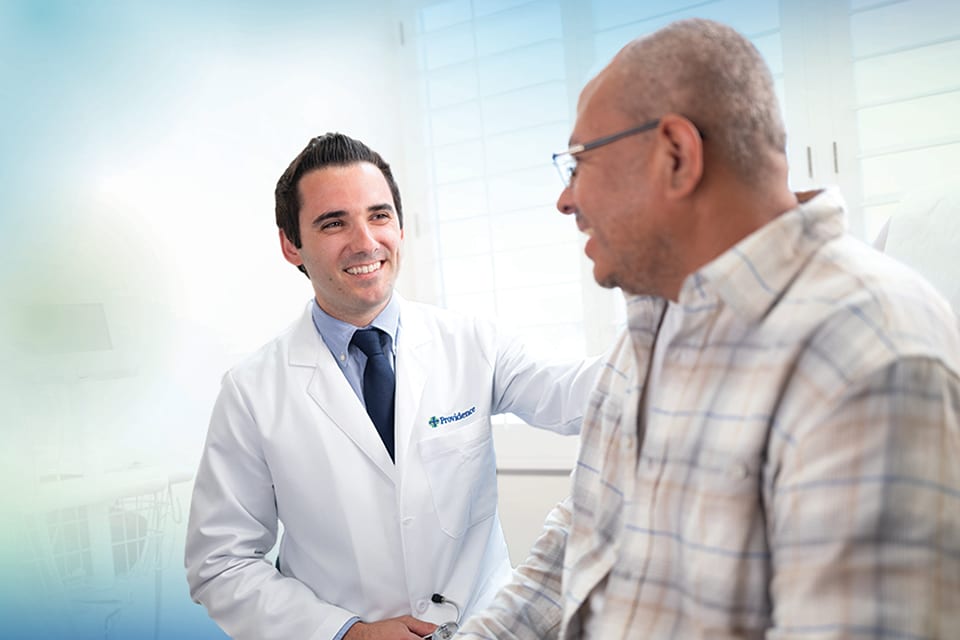Mental wellness makes a bright future
 Finally, some good news on the youth mental health front. After alarming lows in teen mental wellness through the pandemic, a new federal study found improvements beginning last year after two very difficult years for young people.
Finally, some good news on the youth mental health front. After alarming lows in teen mental wellness through the pandemic, a new federal study found improvements beginning last year after two very difficult years for young people.
Yet even with the declines in rates of youth depression, hopelessness and suicidal thoughts, parents are urged to monitor their kids’ mental wellness just as they do their physical needs.
“A good starting point for parents is to discuss this with their child’s pediatrician,” said a Providence expert. “As we do with other specialties, bring your concerns to your primary care physician and after proper screening is done, your physician will recommend appropriate treatment options.”
Those would include a referral to a therapist or psychiatrist or providing other resources or recommendations for follow-up.
“Addressing stigma is key in our quest for healthier communities,” the Providence expert added. “We often default to think that mental illness is something that affects others but not us.
“But that doesn’t hold true for too long when we see how many are affected by depression or anxiety. Stigma has led us to believe that those needing help are our friends, neighbors and colleagues, while we overlook or dismiss our own psychological, emotional or social well-being.”
This heightened awareness spurred a commitment by Providence to continue its outreach to ensure the next generation has the tools it needs to manage their mental wellness.
One such program addresses the mental health issues plaguing 12- to 18-year-olds by partnering with three local schools, offering the free Youth Mental Health First Aid program. This is a skills-based training that teaches parents, caregivers, teachers, neighbors and peers ways to identify, understand and respond to teens and adolescents experiencing mental health challenges.
The course, offered in-person and virtually, in English and Spanish, teaches ways to recognize signs and symptoms and to listen without judging. The tools are not meant to enable participants to diagnose mental health concerns, but potentially to save lives.
At three San Fernando Valley high schools, students train as mental health advocates and are offered step-by-step instruction in having heart-to-heart conversations with their peers who appear in need of support. Serious concerns are reported to adult mentors.
The Centers for Disease Control and Prevention provides symptoms of anxiety in children and teenagers:
Children
- Being very afraid when away from parents (separation anxiety)
- Having extreme fear about a specific thing or situation, such as dogs, insects or going to the doctor (phobias)
- Being very afraid of school and other places where there are people (social anxiety)
- Being very worried about the future and about bad things happening (general anxiety)
- Having repeated episodes of sudden, unexpected, intense fear that come with symptoms like heart pounding, having trouble breathing or feeling dizzy, shaky or sweaty (panic disorder)
Teenagers
Anxiety in teens is not always apparent because teens tend to disguise their thoughts and feelings. Some of the signs to look out for are:
- Constant fears or worries about routine aspects of their lives
- Withdrawal from friends or social activities
- Irritability or lashing out at others
- Difficulties in school or sudden poor performance
- Refusal to go to school
- Sleep problems
- Substance abuse
- Constantly seeking reassurance
And in Orange County, Providence has been instrumental in raising mental health awareness through its “Promise to Talk” campaign, symbolized by bright green benches placed around town where people are invited to sit, relax or perhaps have a friendly conversation. The bright lime green is the international color of mental health awareness.
This program is a grass roots movement evolving out of a need to destigmatize the shame of seeking help. So far the group has placed about a dozen green benches in parks throughout Orange County. The campaign also includes plans to target mothers, who they believe can make the biggest difference.
“We all know that feeling when you connect with someone and find that you both have things in common, whether it’s hobbies, taste for a particular food or struggles,” the Providence expert said. “For youth, feeling accepted and heard is at the center as they are in the midst of understanding themselves and others, while still developing a sense of who they are.”
They said having a space that promotes and supports opening up to others is instrumental in setting the stages for seeking help.
“Some youths are passive help-seekers and others are active help-seekers, and having systems in place to support both is crucial for their mental health,” the Providence expert added.


